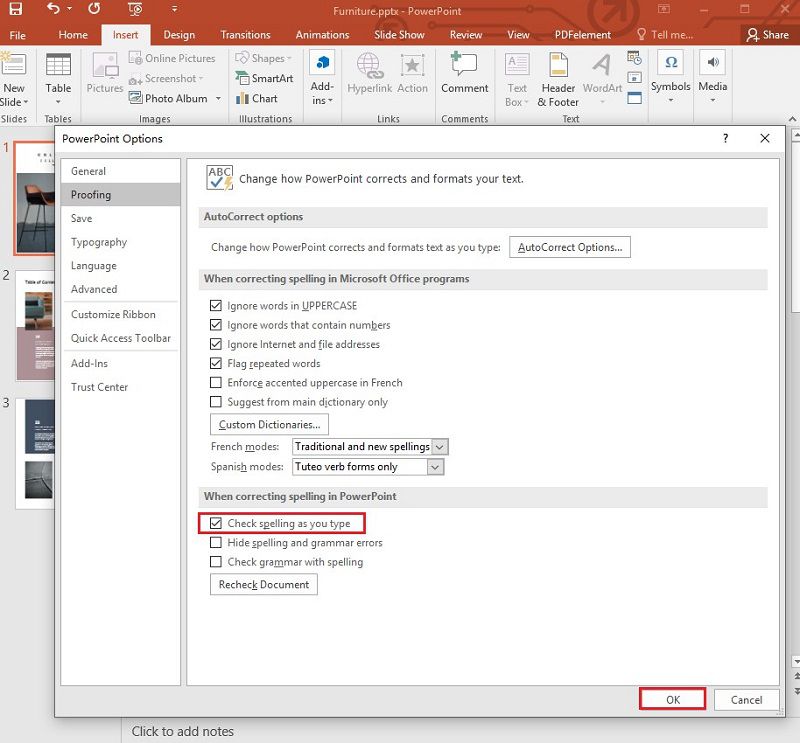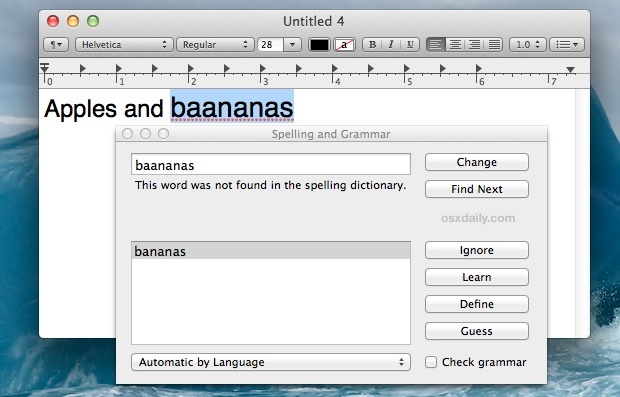

This is a trick that I suggest to all Redokun customers when they download a translated document. Go to the Advanced character formats section.Make sure no text or text box is selected, and double-click on a Character Style or a Paragraph Style.So, how do you set the language with styles? This is especially true if you need to make changes to the document's formatting. Plus, once you've set up a style, it will save you a lot of time. Paragraph and Character Styles give you more control over your document, making it balanced and consistent. If you have already read some of my tutorials, you will know that to me this is the correct option. Otherwise, you will have to set the language later by associating a style with the text or using Find/Change as I will explain later on.

Make sure to change this option before inserting text into your document.
#CONTROL LEFT CLICK MAC SPELL CHECK HOW TO#
If you only need to change the language of a specific document, you will find out how to do it in the next section. (If you don't find the Language option, click on the top-right icon with four horizontal lines and select Show Options).įrom now on, any document you create will have, by default, the set language you have selected. In the Character panel go to the Language menu.In the top menu, click on Window > Type and Tables > Character.So how do you set the language in InDesign? There are 4 different ways to do it: And this helps to manage spelling, and also hyphenation (read more about how to properly manage it in this content). Of course, because the spell check relies on the language set to the text. But before I can reveal their secrets, I need to talk to you about language. There are three ways to make sure you avoid typos in InDesign: Spell Check, Dynamic Spelling, and Autocorrect.


 0 kommentar(er)
0 kommentar(er)
